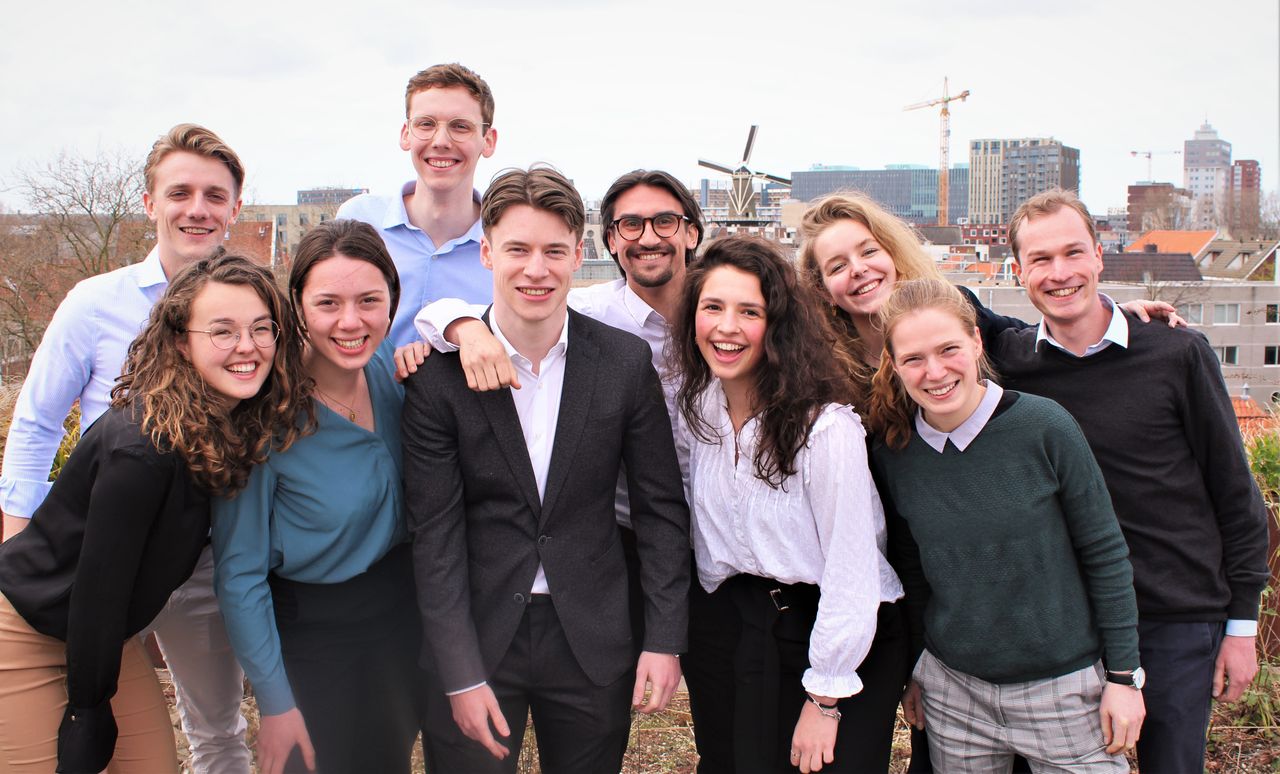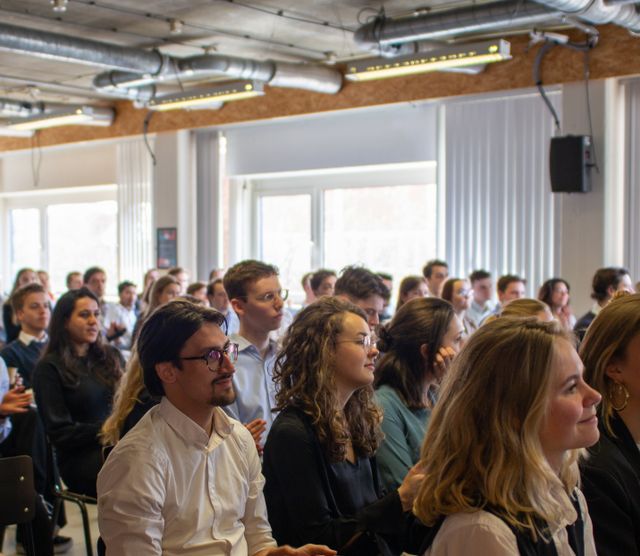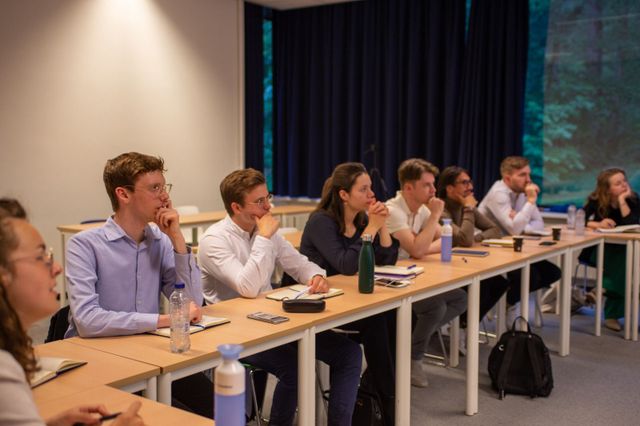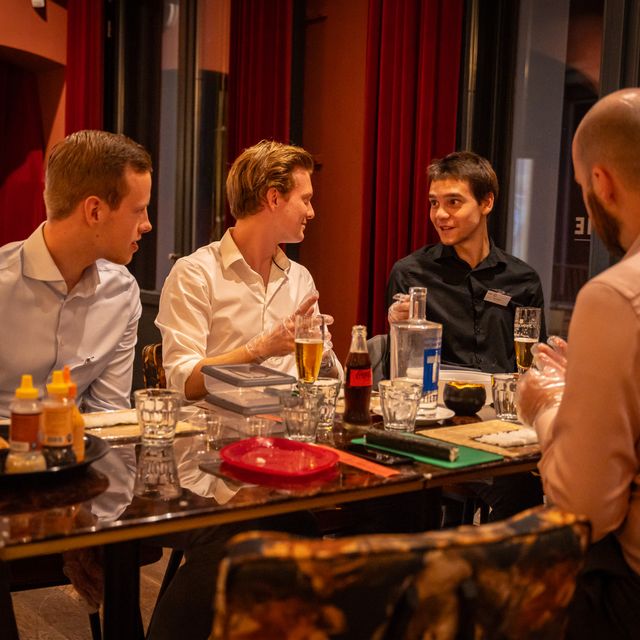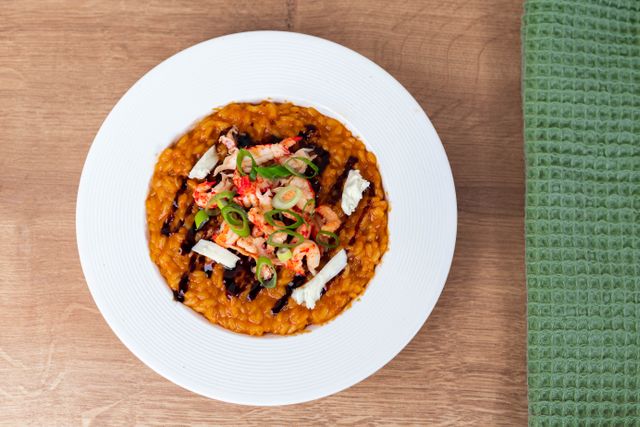De Kleine Consultant
This week we spoke to De Kleine Consultant (DKC). This is a student-run non-profit strategy consultancy. So they provide strategic advice to organisations. Mainly social, because that's what they find important. They are supported in this by the 'big players' in the business world. As a student, you can work here as a consultant. This allows you to develop yourself and experience what it is like to give strategic advice. Serious and professional then? Yes! But not only, because this close-knit team also regularly undertakes social activities together. Curious whether it is something for you? Then read the blog!
WHO ARE YOU, WHAT IS YOUR FUNCTION AT DE KLEINE CONSULTANT AND WHAT DOES IT INVOLVE?
"I'm Sanne Rovers, 22 years old and living in Tilburg for almost four years now. In the past year, I have been active at De Kleine Consultant (DKC) Tilburg. I have been a consultant here for two rounds, and in my last round I held the position of director together with two other consultants. In our directors team, I was responsible for recruitment, marketing and finance. Together with two other consultants, I was also responsible for the social activities."
WHAT IS DKC IN ESSENCE?
"DKC is the first student-run non-profit strategy consultancy in the Netherlands. We aim to develop students, help our clients and learn from our partners. We offer strategic advice where it adds most value. That is mainly in start-ups, non-profit organisations and community SMEs. In doing so, we receive support from our partners. These include Kearney, BCG, McKinsey, Bain, Strategy& and OC&C. In addition to coaching, these partners also provide training courses that we as Kleine Consultants can attend. De Kleine Consultant consists of ten offices spread throughout the Netherlands. We even have a branch in England!"
“ WE AIM TO DEVELOP STUDENTS, HELP OUR CUSTOMERS AND LEARN FROM OUR PARTNERS. ”
WHAT CHARACTERISES DKC?
"Our social projects! At DKC we think it is important to create social value. We do this by giving strategic advice to social organisations. For example, we gave advice to Adopteer Regenwoud. This is an organisation that buys up pieces of rainforest in Costa Rica and then protects them."
"In addition, we consist of a group of students who have different study backgrounds. This makes DKC a diverse group that is going through an enormous development together on a professional and personal level. We also help companies in a valuable way."
WHAT IS THE ORGANISATION LIKE?
"DKC consists of ten offices in the Netherlands and one in England. There is also a National Board which consists of five or six consultants from various offices. Within an office you have directors, project managers and consultants. The directors run the office and ensure that everything runs smoothly, a project manager is primarily responsible for a project and directs the consultants, and the consultants work on the project. The Tilburg branch, for example, consists of three directors, two or three project managers with three to four consultants per project."
WHAT DO DKC'S PROJECTS LOOK LIKE?
"A project lasts ten weeks and consists of various phases. The first week starts with an orientation in which the consultants study the issue. Then they meet the client and draw up a work plan for the following weeks. From week three, the analytical part of the project begins and the consultants conduct research. In week five there is an interim presentation in which the client receives an update on the progress of the project and possibly already receives the first advice."
"During the last five weeks, the consultant will continue to research the issue and in week ten, the project will then conclude with the final presentation in which the client will be presented with the results of the research and receive a final recommendation!"
HOW ARE INFORMAL ACTIVITIES THAT YOU UNDERTAKE TOGETHER?
"Apart from the formal side of DKC, we also do fun things together. We are a group of fifteen people and we are pretty close together. Every round we have an outing in between and a weekend away. For example, we went karting, laser gaming, boating, and you name it!"
What does an average week look like?
"On Monday evening we always have a meeting with the entire office, followed by a drink. You usually have one or two project meetings in a week in which you work on the project with your team. You plan this for each project group. You also work independently on the project. In the end you spend about fifteen hours a week on DKC. I am also including the social activities for the sake of convenience.
“ EVERY PROJECT IS VERY DIFFERENT. YOU LEARN NEW THINGS EVERY ROUND. YOU DIVE RIGHT INTO THE PROJECT AND FIND OUT EVERYTHING IN DETAIL. ”
WHAT ARE THE POSSIBILITIES TO DEVELOP YOURSELF WITHIN DKC?
"I have found that you develop very quickly at DKC. This is mainly because at DKC we are very much into giving and receiving feedback. After every meeting we have a feedback round where we give everyone a personal feedback point. This teaches you to take a critical look. Additionally, you know where there is room for improvement. At the beginning of each round, you set your own learning goals and have several personal development meetings. Of course, you will also learn in the consultancy field. Besides the theory you learn at university, here you apply everything in practice. You will be working on real issues. You will also have regular opportunities to attend training courses organised by partners. You can learn a lot from them!"
WHAT DO YOU LEARN FROM PROJECTS AT DKC?
"Every project is very different. You learn new things every round. You immerse yourself in the project and research everything in detail. In my first round we had a positioning issue, in my second round a growth strategy and in my last round a market entry issue. Hence, the different projects give you a lot of diverse knowledge."
WHAT SHOULD YOU DO IF YOU WANT TO BECOME A SMALL CONSULTANT?
"Because we have three rounds, we also have three entry points, namely September, January and April. If you are interested in DKC, you can apply via the website. You can also always sign up for a coffee and we have an information evening every round! We will also post these on our social media. So keep an eye on those. We do have a few requirements that our partners would like you to meet. You must have a VWO diploma, an average of about 7, have completed 60 credits and you must be fluent in Dutch."
Would you like to know more about De Kleine Consultant? Then take a look at the site!
